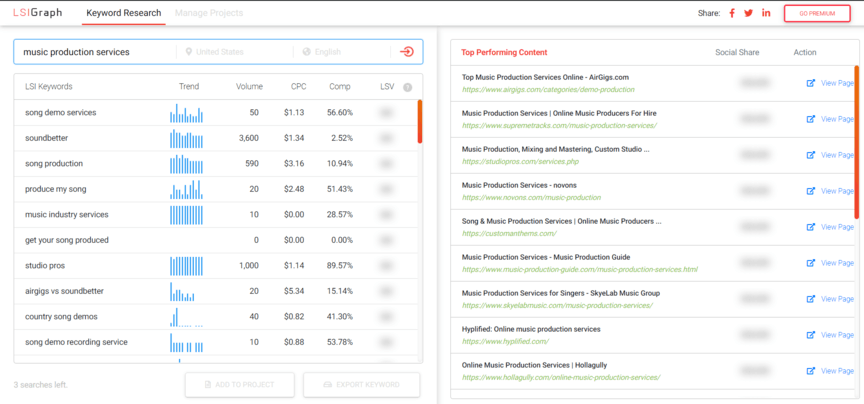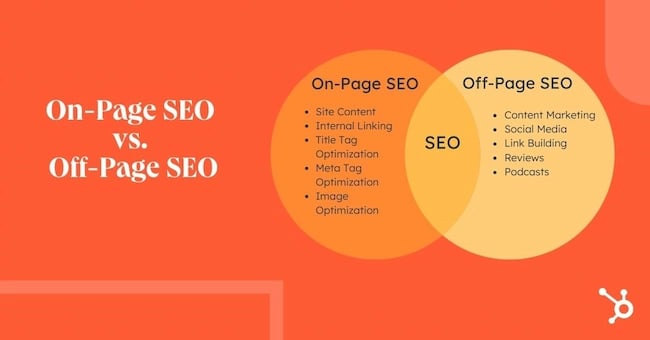Uncover the secrets to selecting the perfect keywords for maximum SEO impact in this comprehensive and informative guide.

Image courtesy of via DALL-E 3
Table of Contents
Introduction to SEO and Keywords
When you search for something on the internet, have you ever wondered why some websites show up at the top of the results page? That’s where SEO and keywords come into play! SEO stands for Search Engine Optimization, and it helps websites like Google find information online. Keywords are the words people type into search engines to find what they’re looking for. Think of keywords as clues that help search engines like Google connect people with the right information.
What is SEO?
SEO is like a secret code that helps websites get noticed by search engines. It’s all about using the right keywords and strategies to make sure your content appears when someone searches for information. Imagine you have a treasure map, and the keywords are the hints that lead you to the treasure – your website!
Why Are Keywords Important?
Keywords are the key to unlocking the treasure trove of information on the internet. They are like magic words that guide search engines to the most relevant content. By using the right keywords, you can help your website rank higher in search results and reach more people who are looking for what you offer. So, choosing the right keywords is like giving your website a secret weapon to stand out in the vast online world.
Starting Your Keyword Research
When starting your keyword research, it’s essential to brainstorm ideas related to your main topic. Think about the words or phrases that people might use when searching for information about your subject. Grab a piece of paper or open a document on your computer and write down as many ideas as you can think of. This brainstorming process can help you come up with a variety of keywords to target in your content.
Using Keyword Tools
Aside from brainstorming, utilizing keyword tools can significantly aid in finding popular and effective keywords for your content. Tools like Google Keyword Planner can provide insights into the search volume and competition level of specific keywords. By using these tools, you can discover which keywords are trending and have the potential to drive more traffic to your website or article. Take advantage of these resources to refine your list of keywords and optimize your content for search engines.
Evaluating Keyword Relevance
When it comes to choosing keywords for SEO, it’s crucial to evaluate their relevance to your content and audience. Understanding whether a keyword is related to your topic and if it will attract the right visitors is key to a successful SEO strategy. Let’s delve into how you can assess the relevance of keywords effectively.

Image courtesy of www.linkedin.com via Google Images
Understanding Your Audience
Before selecting keywords, it’s essential to have a clear understanding of who your target audience is. Think about who would be searching for the information you provide and what they are looking for. By knowing your audience, you can tailor your keyword selection to align with their interests and search intent.
Finding Related Keywords
One way to ensure your keywords are relevant is by finding related keywords that are closely associated with your main topic. These related keywords can help you capture a broader range of search queries while maintaining relevance to your content. Tools like Google Keyword Planner can assist in identifying related keywords that resonate with your audience.
Analyzing Keyword Competition
When it comes to selecting the right keywords for SEO, it’s crucial to consider not just their relevance but also their competition. Analyzing keyword competition helps you understand how many other websites are using the same keywords and how difficult it will be to rank for them. Let’s delve into how you can assess keyword competition effectively.
Search Volume
Search volume refers to the number of times a particular keyword is searched for on a search engine like Google every month. Understanding search volume can give you insights into how popular a keyword is and how much potential traffic it can bring to your website. Keywords with high search volumes are often more competitive, meaning that many websites are vying for the top spots in search results.
Keyword Difficulty
Keyword difficulty measures how challenging it is to rank for a specific keyword due to the level of competition. If a keyword has high difficulty, it means many other websites are already using it, making it harder for your site to rank well for that keyword. On the other hand, keywords with low difficulty might present a better opportunity for your website to stand out in search results.
Choosing Long-Tail Keywords
When you think about keywords, you might imagine short, common words like “recipe” or “travel.” But have you heard of long-tail keywords? These are longer and more specific phrases that can actually help your website stand out in search engine results. Let’s explore what long-tail keywords are and why they are important for your SEO strategy.

Image courtesy of www.webfx.com via Google Images
What Are Long-Tail Keywords?
Long-tail keywords are like detailed questions or phrases that people type into search engines when they’re looking for something specific. Instead of just “travel,” a long-tail keyword could be “best family-friendly resorts in Hawaii.” These keywords are highly specific and target a particular audience.
Benefits of Long-Tail Keywords
Using long-tail keywords has several advantages. First, they can help you reach a more targeted audience. When someone searches for a specific question or phrase, they are likely closer to making a decision. By using long-tail keywords related to your content, you attract visitors who are more likely to engage with it.
Using Keywords Effectively
When it comes to optimizing your website for search engines, using keywords effectively is key. Keywords are the words or phrases that people type into search engines to find information. By strategically placing keywords in your content, you can make your website more visible to search engines like Google. Let’s explore how to use keywords effectively to improve your website’s search engine ranking.
In the Title and Headings
One of the most important places to include your keywords is in the title and headings of your article or webpage. By using keywords in these prominent locations, you are signaling to Google what your content is about. This helps search engines understand the topic of your page and index it correctly in search results. Make sure to incorporate your main keywords naturally within the title and headings to enhance visibility.
In the Content
It’s crucial to include keywords naturally throughout your content. However, you want to avoid keyword stuffing, which means overloading your content with too many keywords. This can make your content hard to read and may even hurt your SEO efforts. Instead, focus on incorporating keywords in a way that flows naturally within the text. Consider using synonyms or related terms to diversify your keyword usage without compromising the readability of your content.
Monitoring and Adjusting Keywords
Once you’ve chosen the right keywords for your content, it’s essential to monitor their performance and make adjustments as needed. By keeping track of how well your keywords are doing, you can ensure that your website or article remains visible to search engines and attracts the right audience.

Image courtesy of blog.hubspot.com via Google Images
Using Analytics
Analytics tools can provide valuable insights into how your chosen keywords are performing. These tools can show you important data such as how many visitors are coming to your site through specific keywords, what pages they visit, and how long they stay. By analyzing this information, you can determine which keywords are driving traffic and which may need adjustment.
Making Adjustments
Based on the data from your analytics, you may need to make adjustments to your keywords. If certain keywords are not driving enough traffic or are not relevant to your content, consider replacing them with more effective terms. Additionally, if you notice that certain keywords are performing exceptionally well, you can focus on optimizing your content further around those keywords to attract even more visitors.
Monitoring and adjusting your keywords regularly can help improve your website’s visibility and ensure that you’re reaching the right audience with your content.
Common Mistakes to Avoid
When it comes to choosing keywords for SEO, there are some common mistakes that can hinder your efforts to make your website more visible on search engines. By steering clear of these pitfalls, you can enhance your chances of reaching the right audience effectively.
Keyword Stuffing
One of the most prevalent mistakes people make is keyword stuffing. This involves cramming an excessive number of keywords into your content in an attempt to manipulate search engines. Not only does this practice make your content challenging to read for visitors, but it can also negatively impact your SEO efforts. Search engines like Google are smart enough to recognize keyword stuffing and may penalize your website for it. To avoid this, aim to use keywords naturally and strategically throughout your content.
Using Wrong Keywords
Another mistake to watch out for is using the wrong keywords. It’s crucial to choose keywords that accurately reflect the content of your website or article. Opting for keywords that are irrelevant or misleading can confuse visitors and harm your site’s ranking on search engine results pages. Take the time to research and select keywords that align closely with the main topics and themes of your content. By doing so, you can attract the right audience and improve your chances of ranking higher in search results.
Summary
In this comprehensive guide, we learned about the importance of SEO and choosing the right keywords to improve visibility on search engines like Google. By understanding what SEO is and why keywords are crucial, we can optimize our content to reach a wider audience.
Image courtesy of blog.hubspot.com via Google Images
Key Takeaways
We discovered that SEO, or Search Engine Optimization, helps websites appear in search results. Keywords are the words people type into search engines to find information. By brainstorming ideas related to our topic and using tools like Google Keyword Planner, we can find popular keywords for our content.
It’s important to evaluate the relevance of keywords by understanding our audience and finding related keywords. Analyzing competition through search volume and keyword difficulty helps us choose the right keywords to target. Long-tail keywords, which are specific phrases, can attract targeted audiences with less competition.
By strategically placing keywords in titles, headings, and content, we can make our content more visible to search engines. Monitoring keyword performance using analytics and making adjustments when necessary ensures our content remains optimized for search.
Lastly, we discussed common mistakes to avoid, such as keyword stuffing and using irrelevant keywords. By following the tips shared in this guide, we can effectively choose keywords, conduct keyword research, and optimize our content for SEO success.
Frequently Asked Questions (FAQs)
What If I Can’t Find Good Keywords?
If you’re having trouble finding good keywords, don’t worry! There are a few things you can try. First, consider using long-tail keywords which are more specific phrases that may have less competition. You can also brainstorm different variations of your main keywords or use keyword research tools like Google Keyword Planner to discover new ideas. Remember, the key is to think outside the box and find unique keyword combinations that relate to your content.
How Many Keywords Should I Use?
When it comes to the number of keywords to use in an article or webpage, it’s important to strike a balance. You don’t want to overdo it with too many keywords, as this can make your content sound unnatural and may even hurt your SEO rankings. Instead, focus on using a handful of relevant keywords that are integrated seamlessly into your content. Aim for 2-5 keywords per page to ensure your content remains user-friendly and engaging while still targeting search engine algorithms.







